what is the prognosis for malignant pleural effusion
A complication in many types of tumors its presence indicates the onset of the terminal stages of cancer. It is a fairly common complication in a number of different cancers.

Overall Survival Probability According To Malignant Pleural Effusion Download Scientific Diagram
Malignant pleural effusion MPE is common with an estimated annual incidence of 150 000 in the USA alone and given the year-on-year increase in new cancer diagnoses the incidence is set to rise1 2 MPE represents advanced malignant disease and current guidelines quote median survivals of between 3 and 12 months3 Pleural and oncological treatment options are.
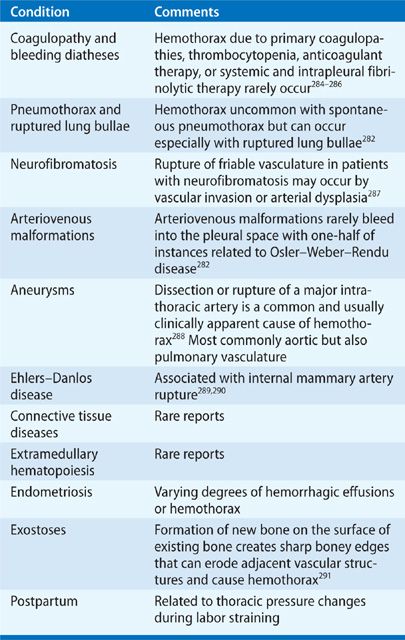
. The medial survival of patients with breast cancer was 6 months and those with either lung cancer or lymphoma had a median survival of 4 months Tables 3 and. Pleural fluid glucose 60 mgdl Karnofsky performance status 70 size of the effusion in chest radiographs massive effusion pleural fluid pH 720 presence of concomitant alterations in chest radiographs and pleural lactic acid dehydrogenase levels 600 Ul showed a significant association with the probability of failure. The main symptom of malignant pleural effusions MPE is shortness of breath 57 typically progressive exertional dyspnea followed by cough 43.
This condition is associated with very high mortality with life expectancy ranging from 3 to 12 months. For lung cancer typically life expectancy is around 6 months. Malignant pleural effusion MPE is a common and important clinical condition.
The most common associated malignancy in men is lung cancer. The most common underlying tumors are lymphomas and cancers of the lung breast and ovaries which account for 75 of cases. If cancer grows in the pleural space it causes a malignant pleural effusion This condition is a sign that the cancer has spread or metastasized to other areas of the body.
Symptomatic malignant pleural effusion is a common clinical problem. Dyspnea is the most common symptom of MPE. Median survival after diagnosis is 4 to 9 months 1 3 although prognosis varies considerably depending on the type and stage of the malignancy.
The prognosis of cases where the effusion is due to carcinoma of the lung or due to cancer of the. Symptoms are often distressing and its presence signifies advanced disease. A pleural effusion is a collection of fluid between the lung and ribcage.
The most common form of cancer that starts in the pleura is mesothelioma a cancer often caused by exposure to asbestos. Patients in these stages often have a poor prognosis with an average life expectancy of less than six months. A complication in many types of tumors.
Most patients will be symptomatic although up to 25 percent may be asymptomatic with the effusion discovered incidentally during imaging for another reason. Median overall survival was 9 months. M anaging patients with malignant pleural effusion can be challenging.
Effusions can happen in other parts of the body like around joints. Patients with pleural effusion and ovarian cancer had the best median survival 21 months compared with those with other primary tumors. The prognosis of the patient with a pleural effusion depends on the underlying condition.
Am J Respir Crit Care Med Vol. Prognosis of Malignant Pleural Effusion As previously mentioned this condition often indicates the presence of advanced stage lung cancer or breast cancer. The average malignant pleural effusion life expectancy is a little less than six months with the median survival time being as less as four months.
Respiratory symptoms include breathlessness cough and chest pain. No previous studies however have reported long-term outcomes for patients undergoing diagnostic pleuroscopy in whom no malignancy was demonstrated either with cytologic examination of. Several studies have demonstrated the diagnostic yield of medical thoracoscopy pleuroscopy in making the diagnosis of malignant pleural effusion MPE.
Studies are contributing evidence on an increasing number of therapeutic options therapeutic thoracentesis thoracoscopic pleurodesis or thoracic drainage indwelling pleural catheter. However most patients with a pleural effusion have no long-term sequelae. If there is a pleural effusion present then that means the cancer is metastatic.
Malignant Pleural Effusion A malignant pleural effusion MPE is the build up of fluid and cancer cells that collects between the chest wall and the lung. Download Citation On Jun 20 2022 Michael Croft published Malignant pleural effusion Find read and cite all the research you need on ResearchGate. Malignant pleural effusion MPE is a common and important clinical condition.
Im not sure for other cancers as I dont treat them but I suspect 12 months or less. Pulmonology 17 years experience. Malignant cells can reach the pleural space without effusion and lavage of the pleural space before resection of lung cancer in those without effusion can have positive cytologic results in as many as 53 in a study of 1200 patients undergoing surgery.
If due to heart failure cirrhosis or malignancy the effusion is likely to recur. Development of a malignant pleural effusion is associated with a very poor prognosis with median survival of 4 months and mean survival of less than 1 year. The clinical history of patients with malignant pleural effusion MPE can be variable.
The average survival of malignant pleural effusions MPE ranges from 4 to 7 months and is dependent on the stage and type of the underlying malignancy. A pleural effusion can be serious and potentially life-threatening but it is treatable. A malignant pleural effusion is when the fluid builds up because of cancer.
Development of a malignant pleural effusion is associated with a very poor prognosis with median survival of 4 months and mean survival of less than 1 yearref14ref15 The most common associated m. Development of a malignant pleural effusion is associated with a very poor prognosis with median survival of 4 months and mean survival of less than 1 year. 681 views Answered 2 years ago.
This can cause you to feel short of breath andor have chest discomfort. Increasing importance is placed on slowing down disease progression by improving risk factors. 11 Positive cytologic results on pleural lavage indicate poorer prognosis and may be incorporated into future modifications of.
Malignant effusions may change the staging and subsequent prognosis of the underlying cancer.

The Diagnostic Steps In Suspected Malignant Pleural Effusion Table 1 Download Scientific Diagram

Pdf Malignant Pleural Effusion Medical Approaches For Diagnosis And Management Semantic Scholar
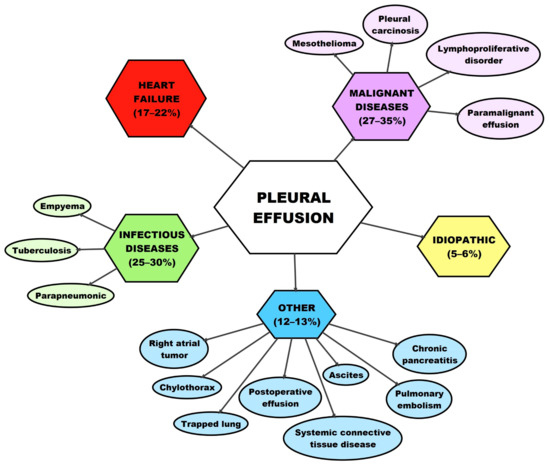
Medicina Free Full Text Malignant Pleural Effusion And Its Current Management A Review Html
Malignant Pleural Effusion Still A Long Way To Go Researcher An
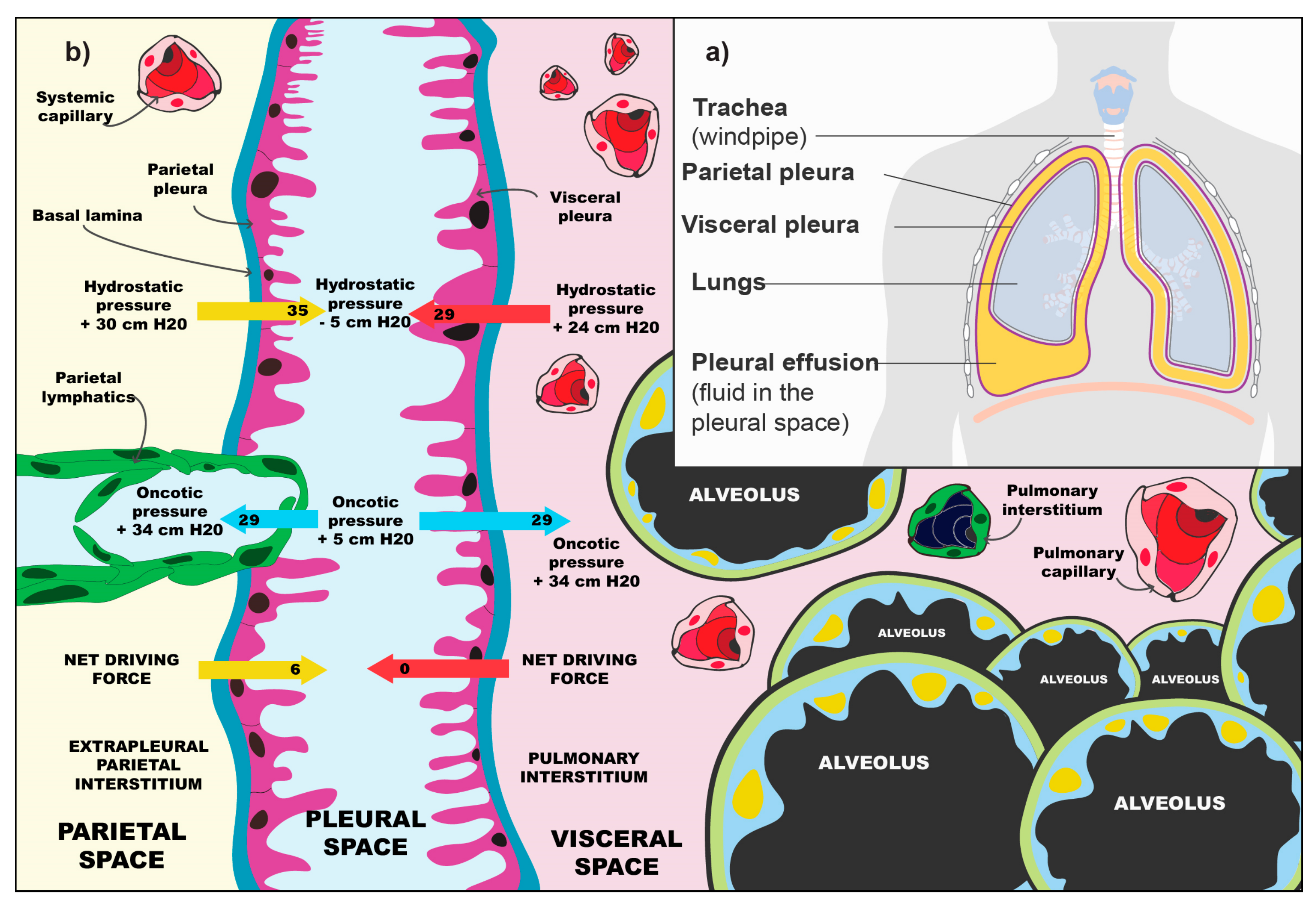
Medicina Free Full Text Malignant Pleural Effusion And Its Current Management A Review Html

Treatment Options For Malignant Pleural Effusions Download Table
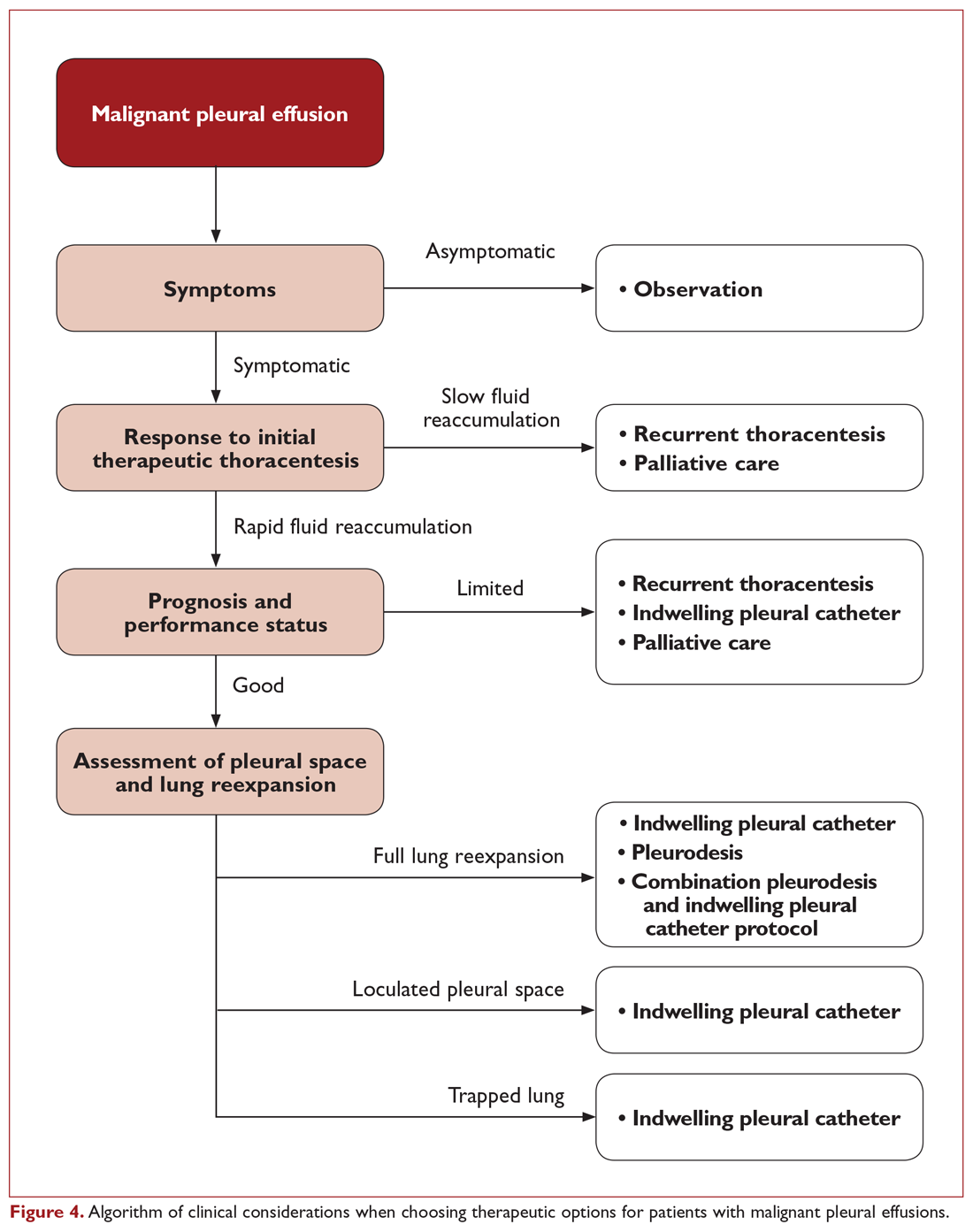
Malignant Pleural Effusion Therapeutic Options And Strategies Pulmonary Health Hub

Malignant Pleural Effusions Thoracic Key
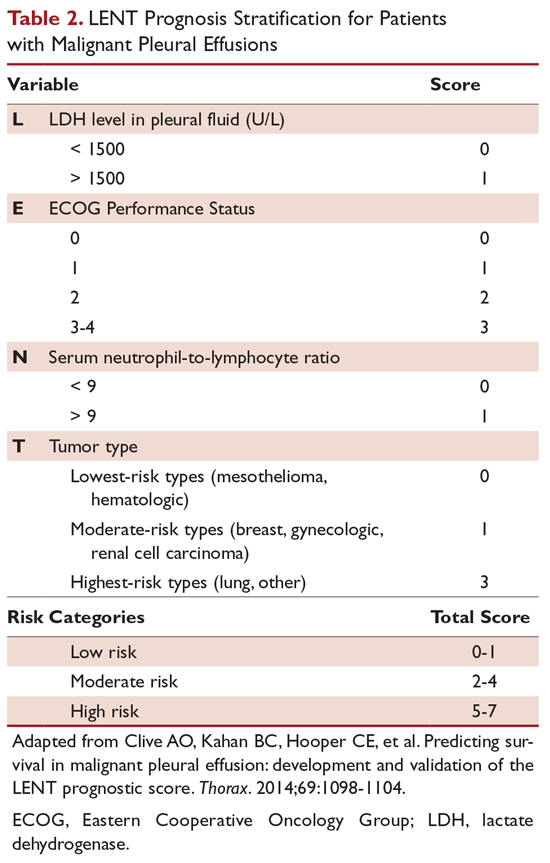
Malignant Pleural Effusion Evaluation And Diagnosis Pulmonary Health Hub
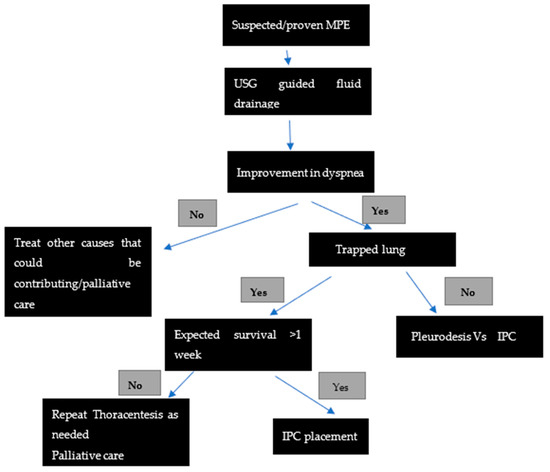
Jcm Free Full Text Malignant Pleural Effusions Mdash A Review Of Current Guidelines And Practices

Malignant Pleural Effusion Management Keeping The Flood Gates Shut The Lancet Respiratory Medicine

Mortality Among Patients With Pleural Effusion Undergoing Thoracentesis European Respiratory Society
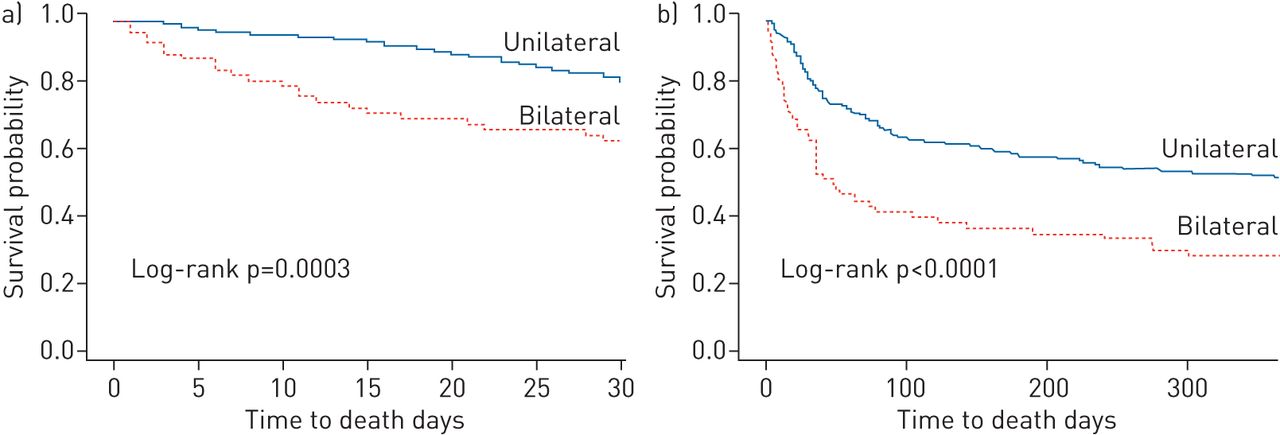
Mortality Among Patients With Pleural Effusion Undergoing Thoracentesis European Respiratory Society

Malignant Pleural Effusion 03102017 Youtube

Management Of Malignant Pleural Effusions The Figure Is Modified From Download Scientific Diagram

Malignant Pleural Effusions Thoracic Key
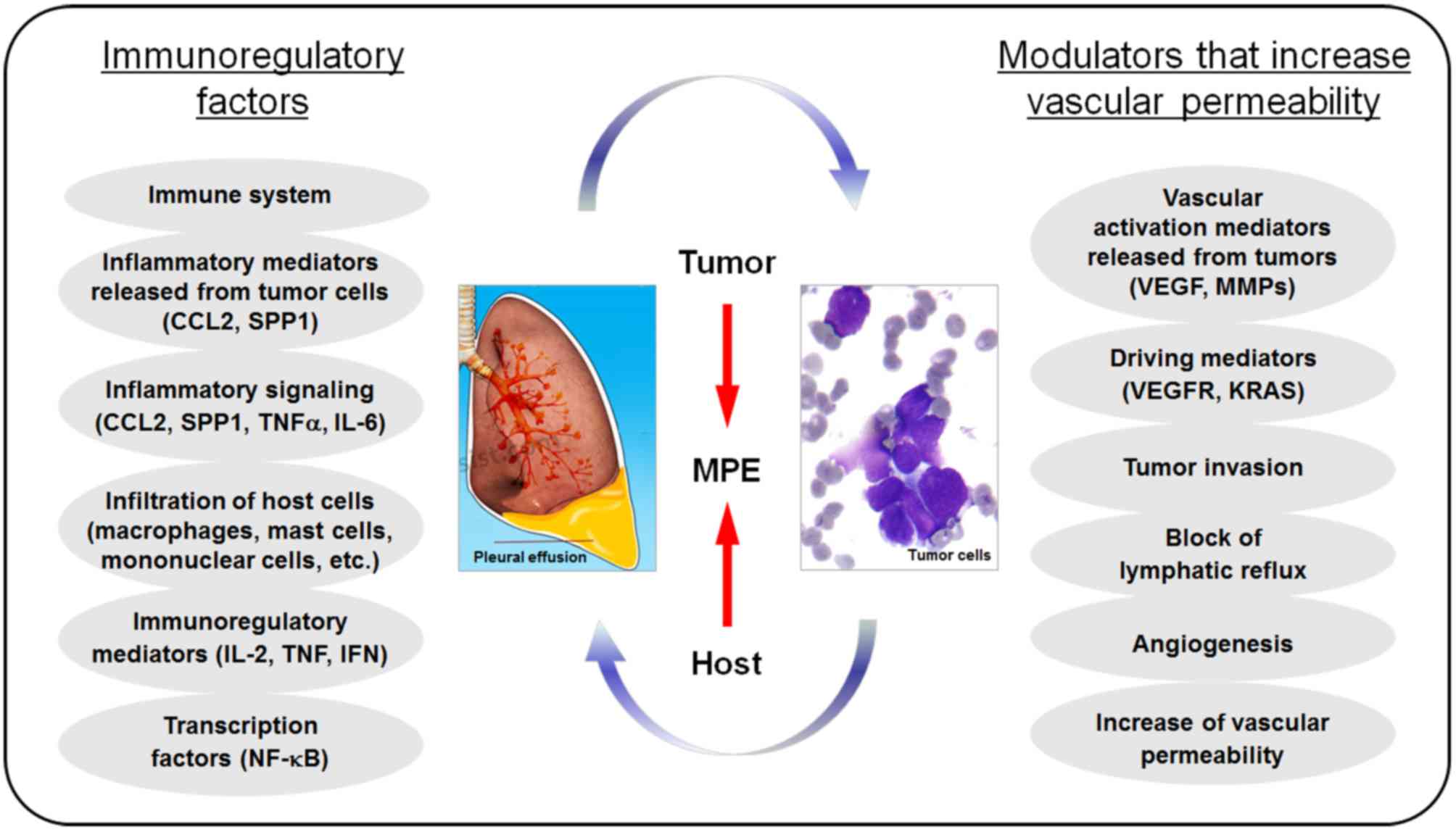
The Role Of Vegf In The Diagnosis And Treatment Of Malignant Pleural Effusion In Patients With Non Small Cell Lung Cancer Review

Prognostic Impact Of Malignant Pleural Effusion At Presentation In Patients With Metastatic Non Small Cell Lung Cancer Journal Of Thoracic Oncology

Ers Eacts Statement On The Management Of Malignant Pleural Effusions European Respiratory Society